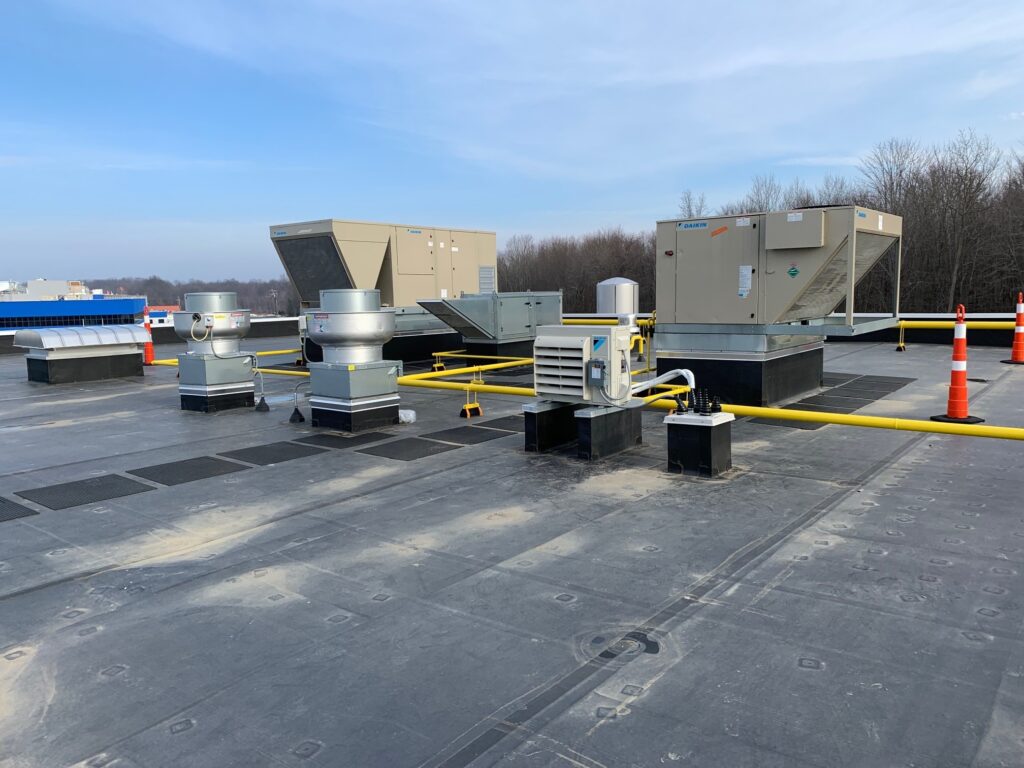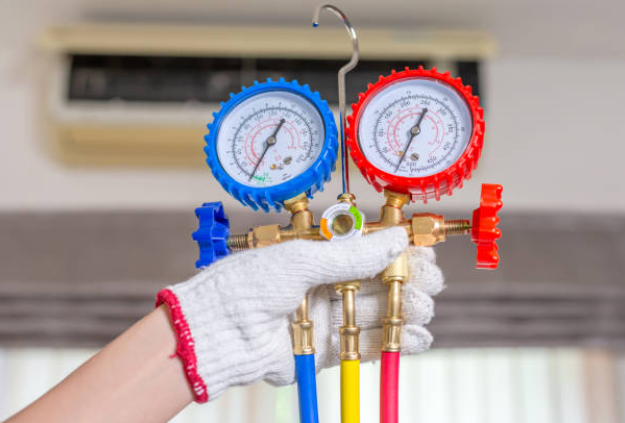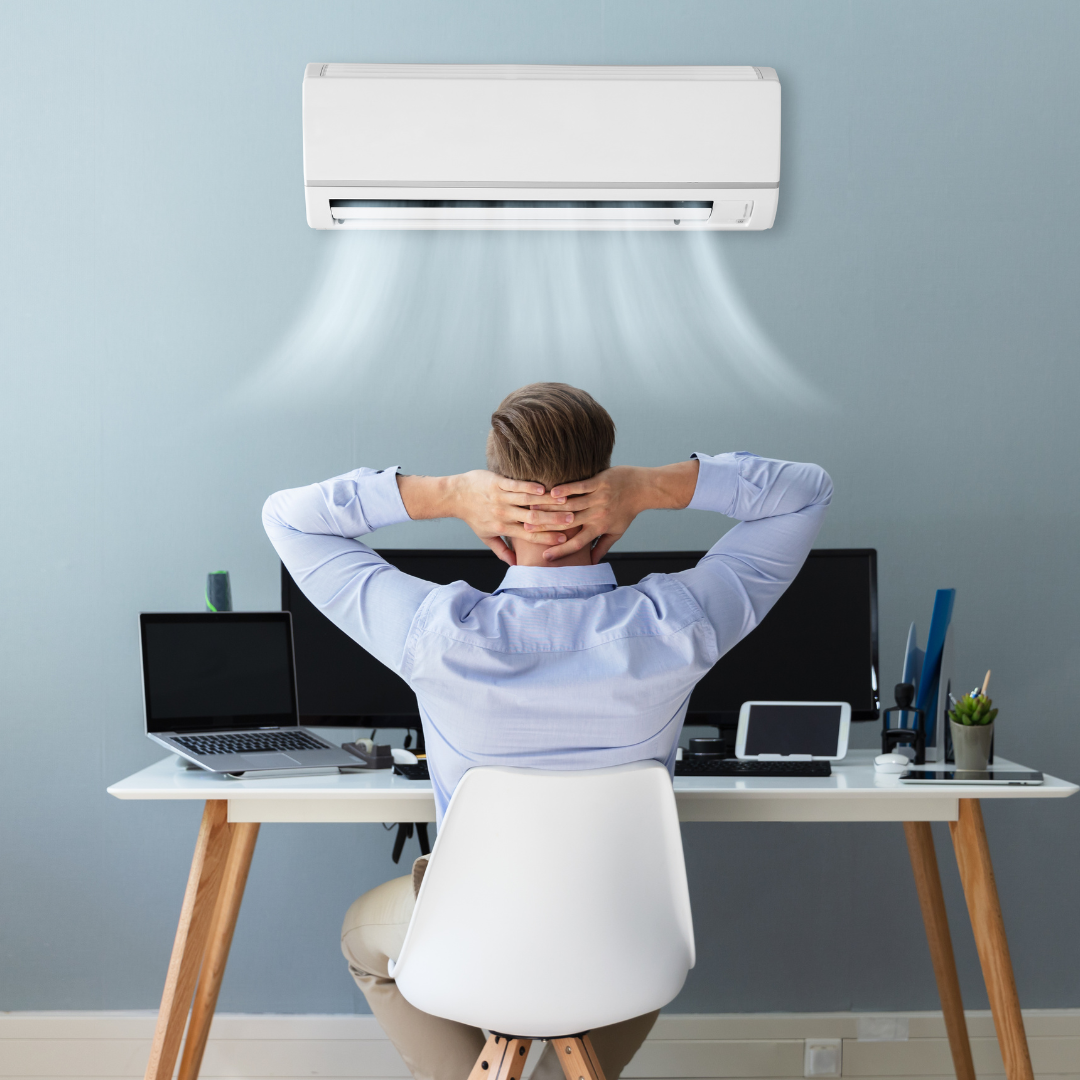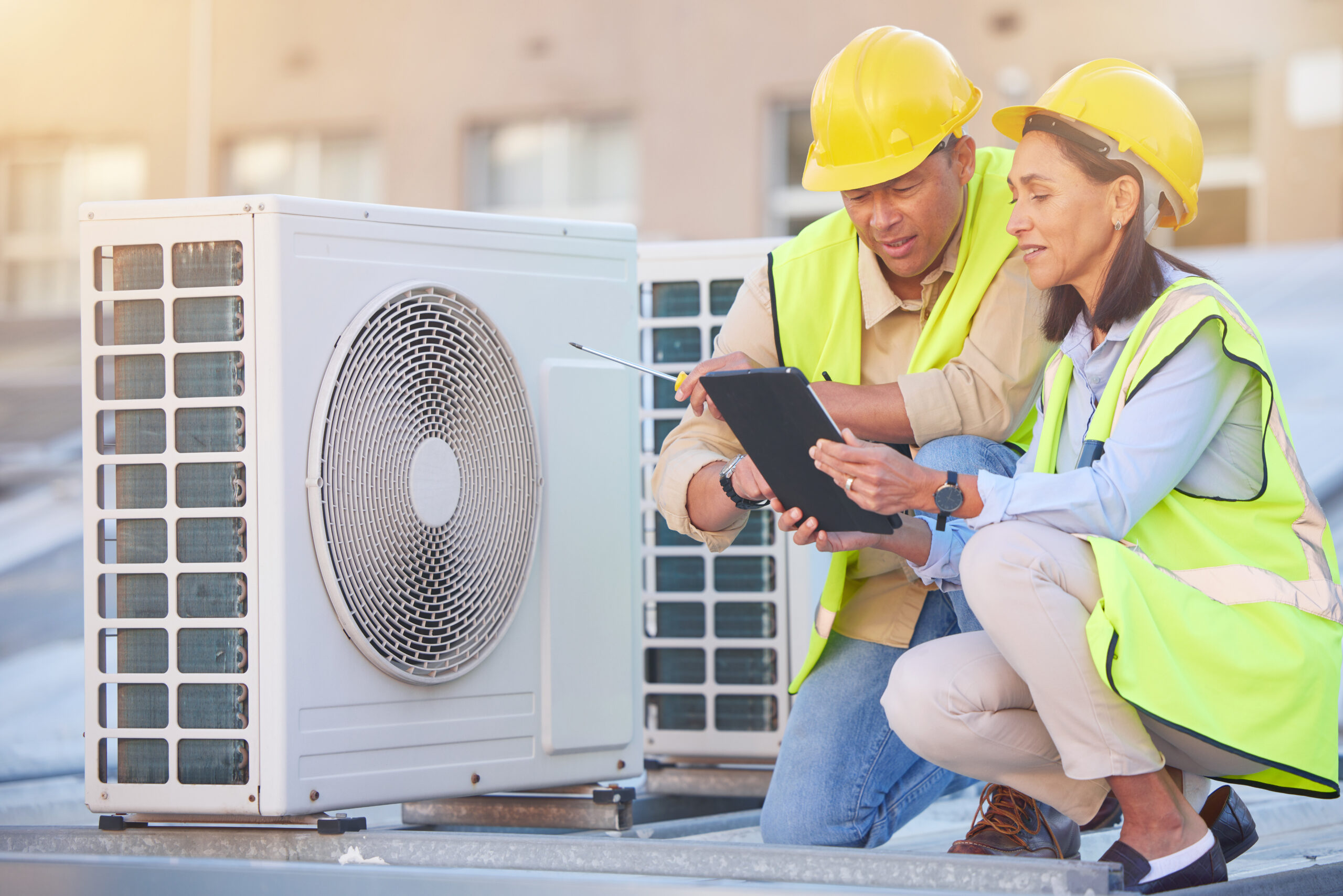Heat pumps are a game-changer for savvy homeowners in Northeast Ohio. They are an innovative, sleek, and all-in-one solution for residential heating and cooling needs. Versatile heat pumps stand out from other HVAC systems because they can “flip the script” between heating and cooling.
Heat pumps are a game-changer for savvy homeowners in Northeast Ohio. They are an innovative, sleek, and all-in-one solution for residential heating and cooling needs. Versatile heat pumps stand out from other HVAC systems because they can “flip the script” between heating and cooling.
If you have one or are considering a new installation, you might wonder, “Does low refrigerant affect heat pump?”
Understanding how heat pumps differ from conventional HVAC setups is crucial for optimizing their performance and ensuring your home stays comfortable, no matter what the Ohio weather has in store.
The Unique Role of Heat Pumps
Heat pumps stand out in the HVAC world because they can reverse their operation based on heating or cooling needs. In warmer months, they extract and release indoor heat outdoors, similar to an air conditioner.
But when the chill of fall and winter arrives, they switch gears, drawing warmth from the outside air to keep our homes toasty. This versatility makes heat pumps appealing to homeowners looking for an all-in-one solution.
The Critical Role of Refrigerant
Heat pumps rely on refrigerant to process and provide treated indoor air. Refrigerant is the vital fluid of every heat pump. It circulates throughout the unit, absorbing and releasing heat when in operation. Whether heating or cooling, this liquid transfers heat efficiently from one place to another. But what happens when there’s not enough refrigerant in the system?
Signs of Low Refrigerant
Low refrigerant levels in a heat pump can lead to several tell-tale signs, including reduced heating or cooling efficiency, longer operation times to achieve desired temperatures, or even the system freezing up, leading to potential damage. These symptoms can be subtle initially, but if left unaddressed, they can snowball into more significant issues.
Why Refrigerant Levels Drop
It’s understandable to question the reasons behind the initial decline in refrigerant levels. Unlike fuel in a car that gets used up as we drive, a heat pump doesn’t consume refrigerant. Low refrigerant could indicate a leak somewhere in the system. These leaks can be small and hard to detect and negatively impact performance.
The Impact on Your Heat Pump and Comfort
When refrigerant levels fall, the heat pump struggles to absorb and transfer heat, making it less effective. In the winter, your system might run longer but provide less warmth, leading to chilly rooms and higher energy bills. The cooling capacity can suffer in the summer, leaving your home less comfortable during hot and humid summer days.
Professional Solutions for Optimal Performance
Addressing low refrigerant isn’t a DIY task. It requires the skilled hands of a professional who can recharge the system and identify and repair leaks. Doing so ensures your heat pump operates efficiently, providing reliable comfort year-round. Regular maintenance is crucial to catching potential issues early, keeping your system running smoothly, and extending its lifespan.
Maximizing Heat Pump Efficiency in the Winter Months
It’s natural to wonder about a heat pump’s performance during cold snaps. Heat pumps are incredibly efficient in mild to moderately cold conditions, but extreme cold can pose challenges.
Here, the question isn’t so much about the refrigerant levels; refrigerant levels stay the same even during cold weather. What matters is the heat pump’s ability to extract warmth from the outdoor air.
When temperatures drop, there’s less ambient warmth for the refrigerant to absorb and bring indoors. However, thanks to technological advances, most modern heat pumps operate effectively even when temperatures fall below freezing.
Many new heat pump models include features to tackle colder climates more effectively. Among them are advanced refrigerant cycles and backup heating systems to provide reliable heat in colder temperatures and climates.
Embracing Efficiency and Comfort in Northeast Ohio
For residents in the Westlake area and beyond, knowing the role of refrigerant in your heat pump is vital to maintaining a safe and healthy home every day of the year.
If you’re noticing signs that your heat pump isn’t operating at its best, possibly due to low refrigerant, it’s worth investigating.
For homeowners in Westlake and the surrounding communities, there’s comfort in knowing help is just around the corner. Our team of skilled HVAC specialists is ready to provide the support you need, whether it’s time for an inspection, servicing, or getting advice on your heat pump or any other HVAC concerns.
Let us help you maintain the optimal balance of comfort and efficiency in your living space. Remember, we’re just a call away, and our team is available to help you maintain a safe and comfortable home.







